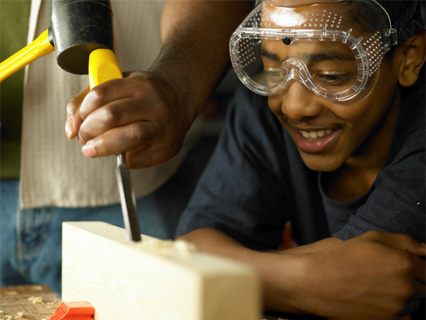Let’s Bring Back Shop Class to Educate and Inspire

Millennials are the first American generation who have not been taught how to use tools — wrenches, screws, saws, etc. — and that could have a negative effect on the country’s trade industries.
Skilled labor is in increasingly high demand as manufacturing jobs trickle back into the country, but as shop class has steadily disappeared from the high school curriculum, there are not always enough skilled laborers to fill the positions, according to the Foundation for America, a nonprofit that invests in creating a skilled labor force.
The foundation is run by John Ratzenberger, an actor who has done many voiceovers for Pixar, including Hamm in the Toy Story series. He began his career as Cliff Clavin, the affable postman on the television show Cheers.
To demonstrate his commitment to teaching tool use, and the joys of working with one’s hands, Ratzenberger has donated $1 million to the state of Georgia to begin the National Education Initiative. Ratzenberger said in a recent interview that teaching tool skills is about making young people more well-rounded individuals:
“It makes you a more well-rounded human being, more capable and self-reliant if you can fix your own screen door. … There are a lot of jobs in manufacturing right now, a lot of jobs in construction, and there’s nobody to fill them because we neglected to teach our children how to use tools and we’ve denigrated the image of manufacturing.”
Learning to use tools also opens up creative possibilities, allowing workers to help innovate the products they create. Many artists, from Frank Lloyd Wright to artisans at the Tiffany Studios, have contributed greatly the Arts and Crafts Movement.
As sociologist Richard Florida explains in his Big Think interview, when companies see their laborers as a source of knowledge and innovation rather than just brute force, they increase the value of their business. Manufacturing jobs can serve as a model for many different industries:
“[After WWII] America had formed a new social compact; unions had been involved. American business decided that workers had to make a higher wage to buy things. Our government was very involved in giving workers rights. We forged a new social compact. … That manufacturing job, which was formally a horrible job became a great job. We made manufacturing work great work.”
Read more at Acculturated.




